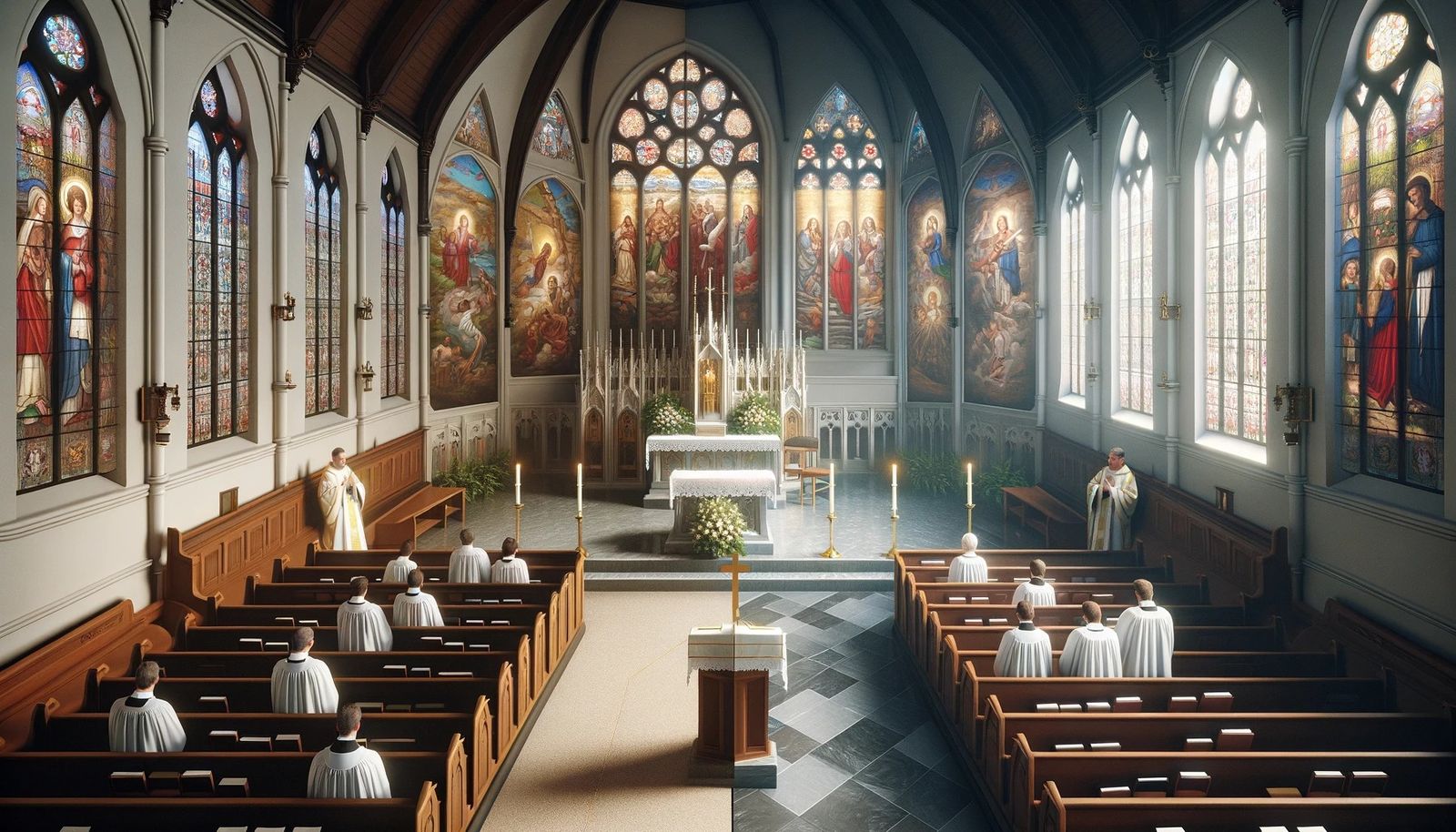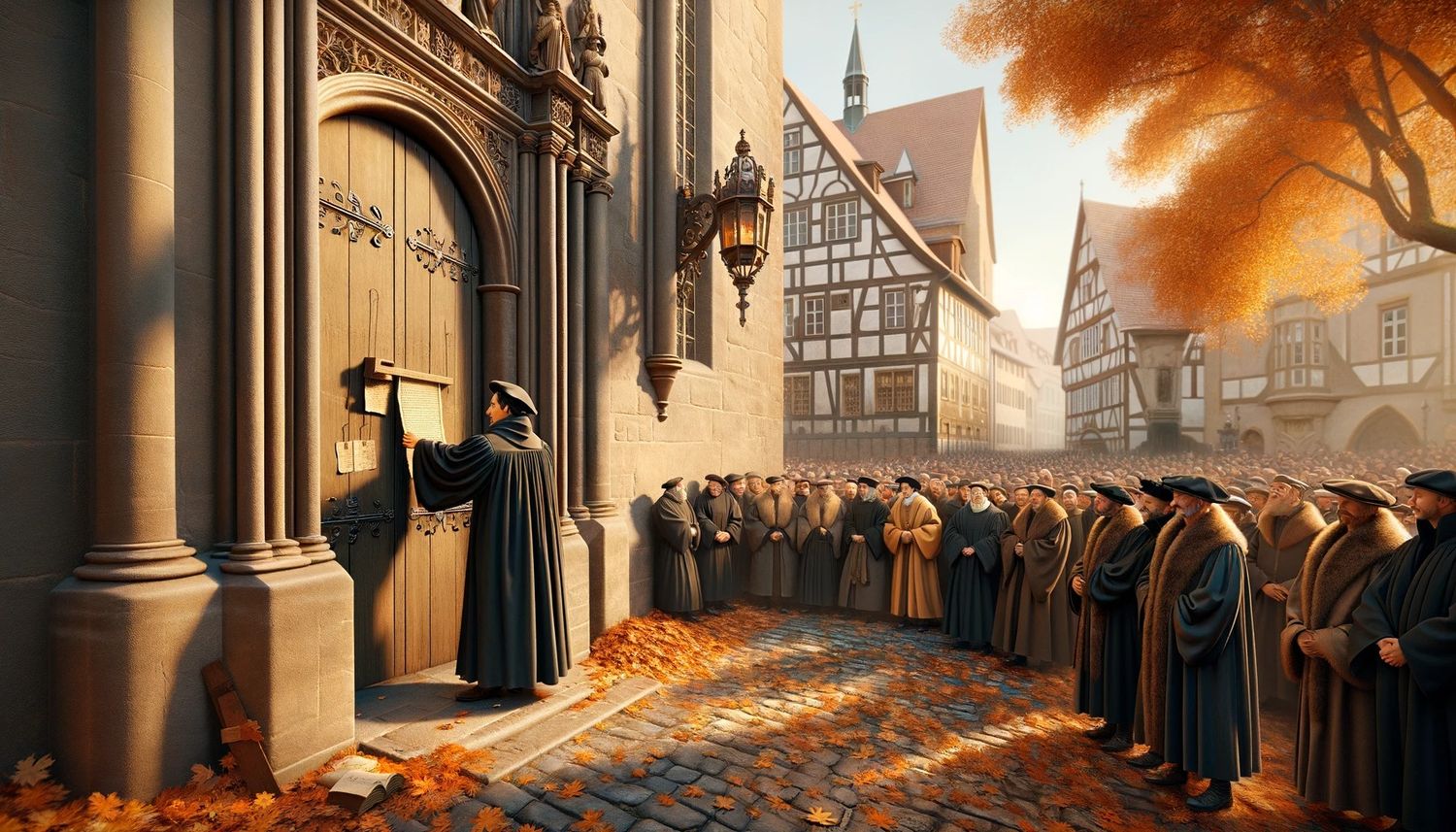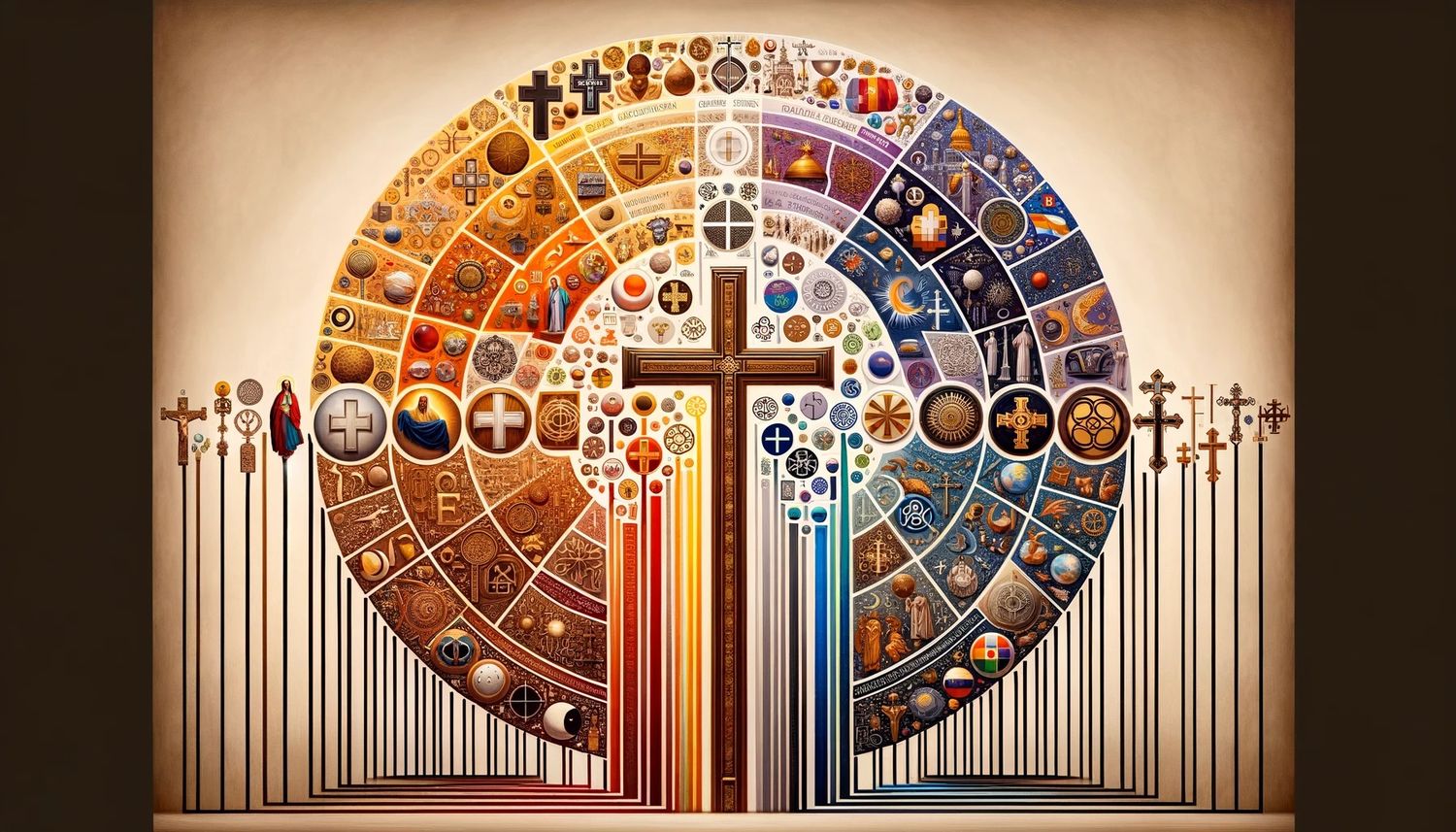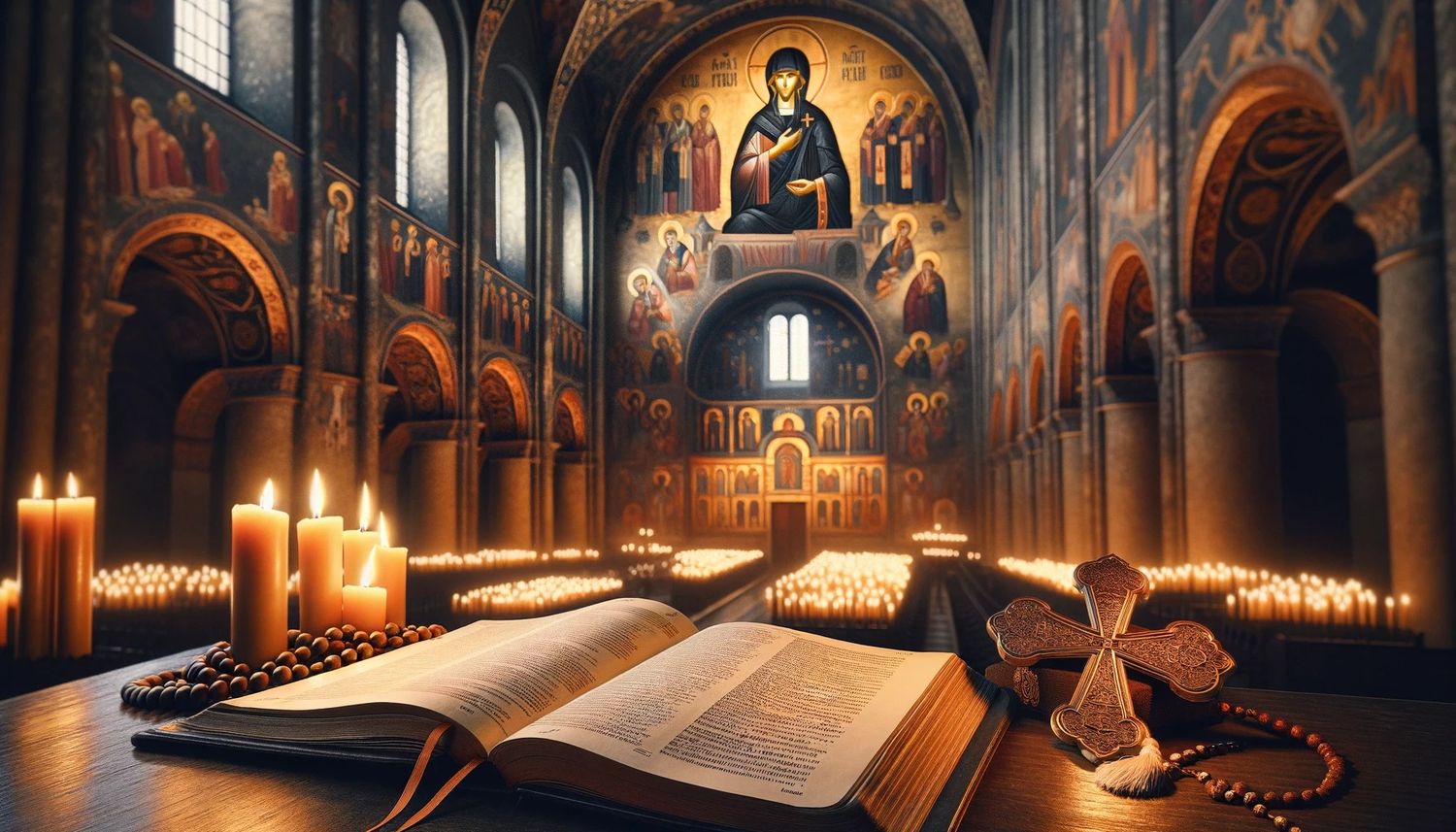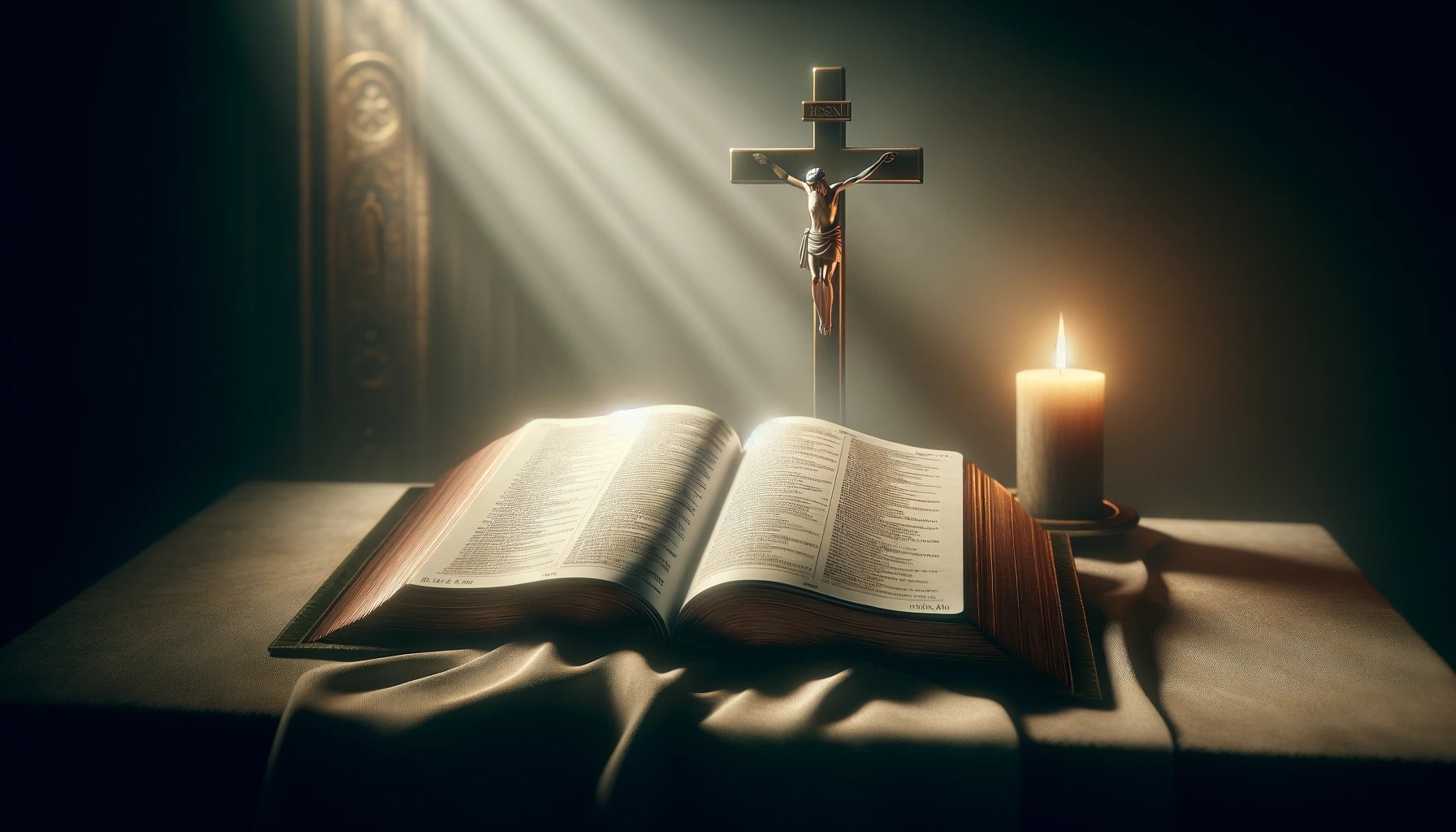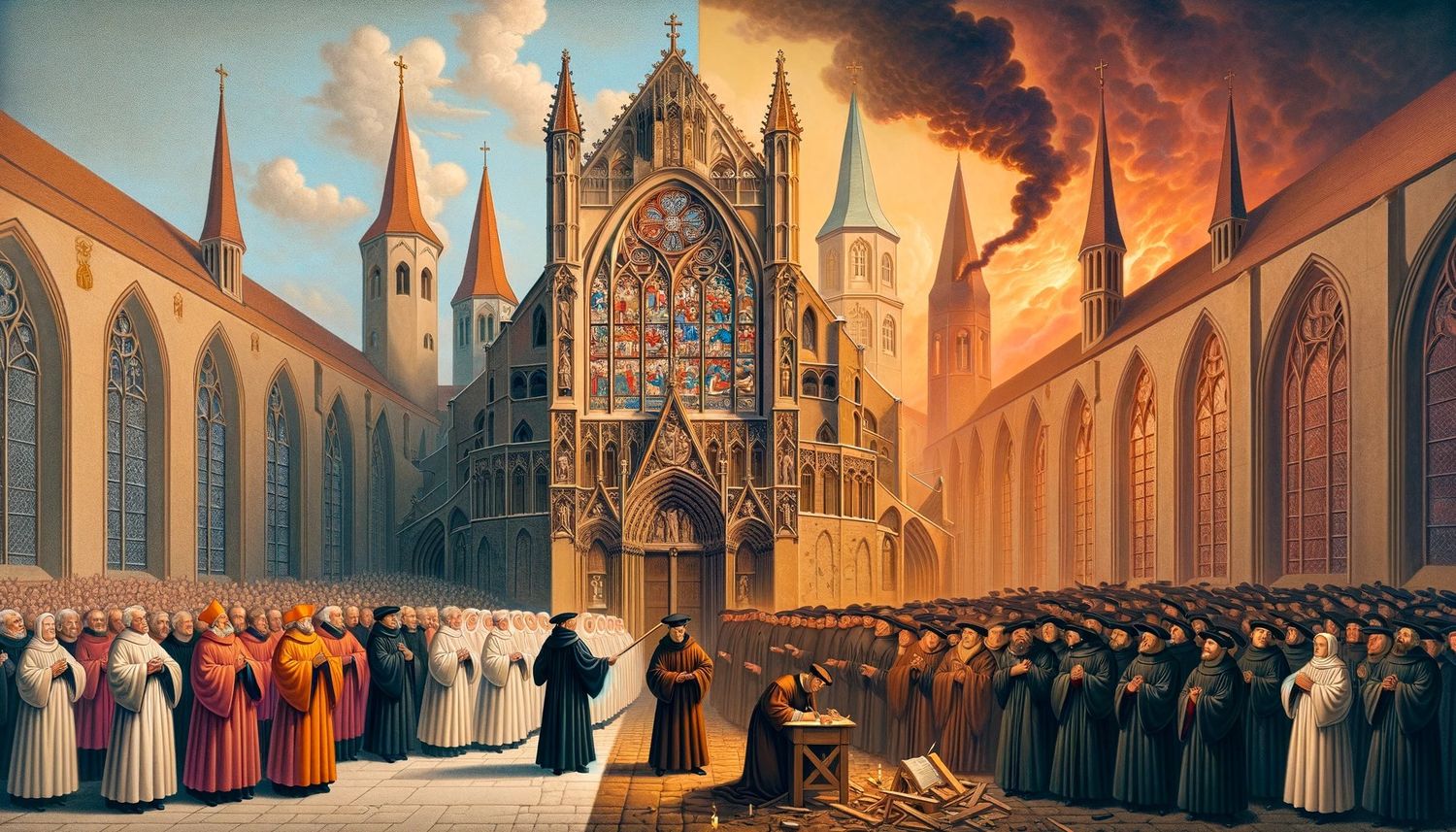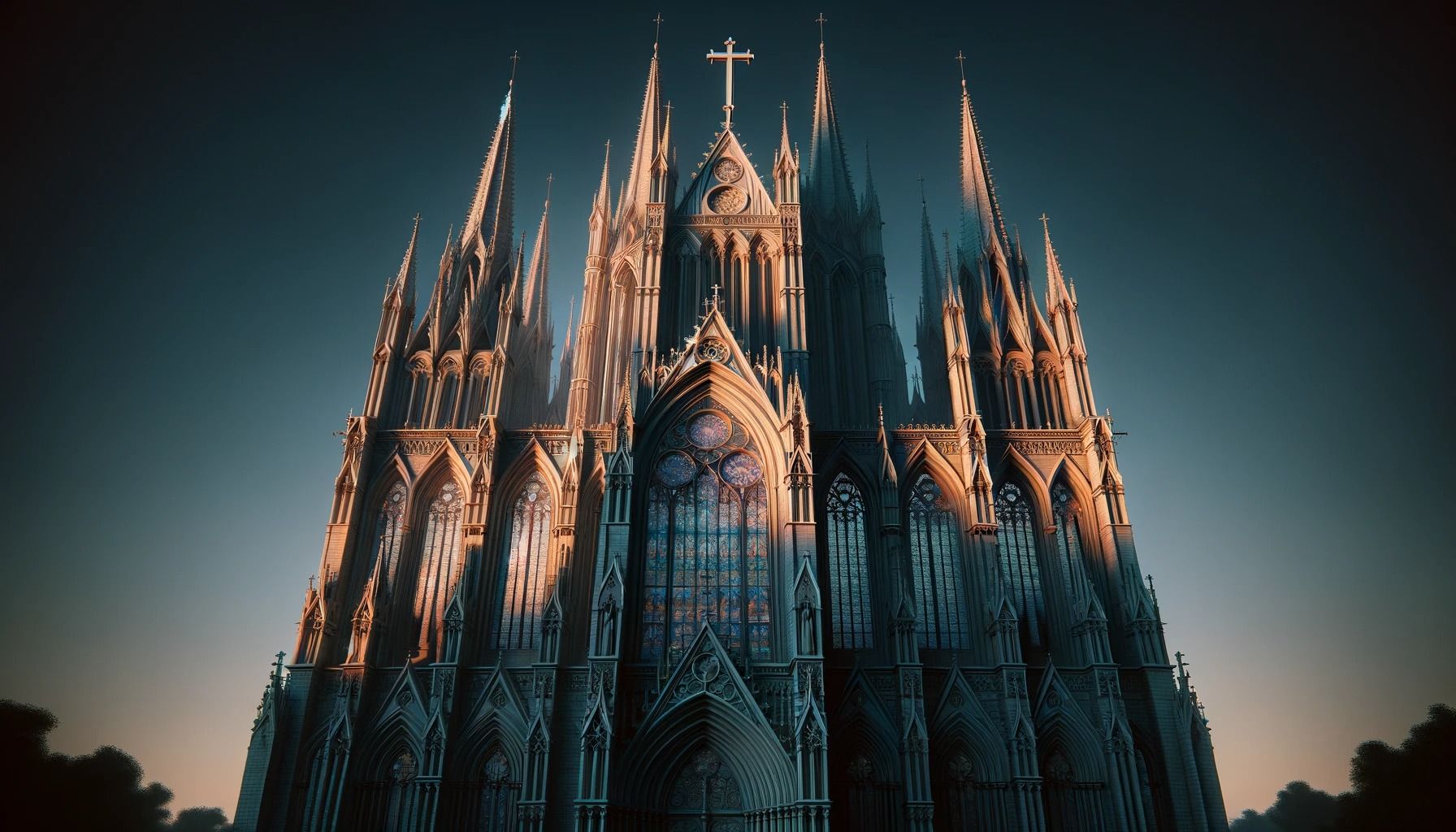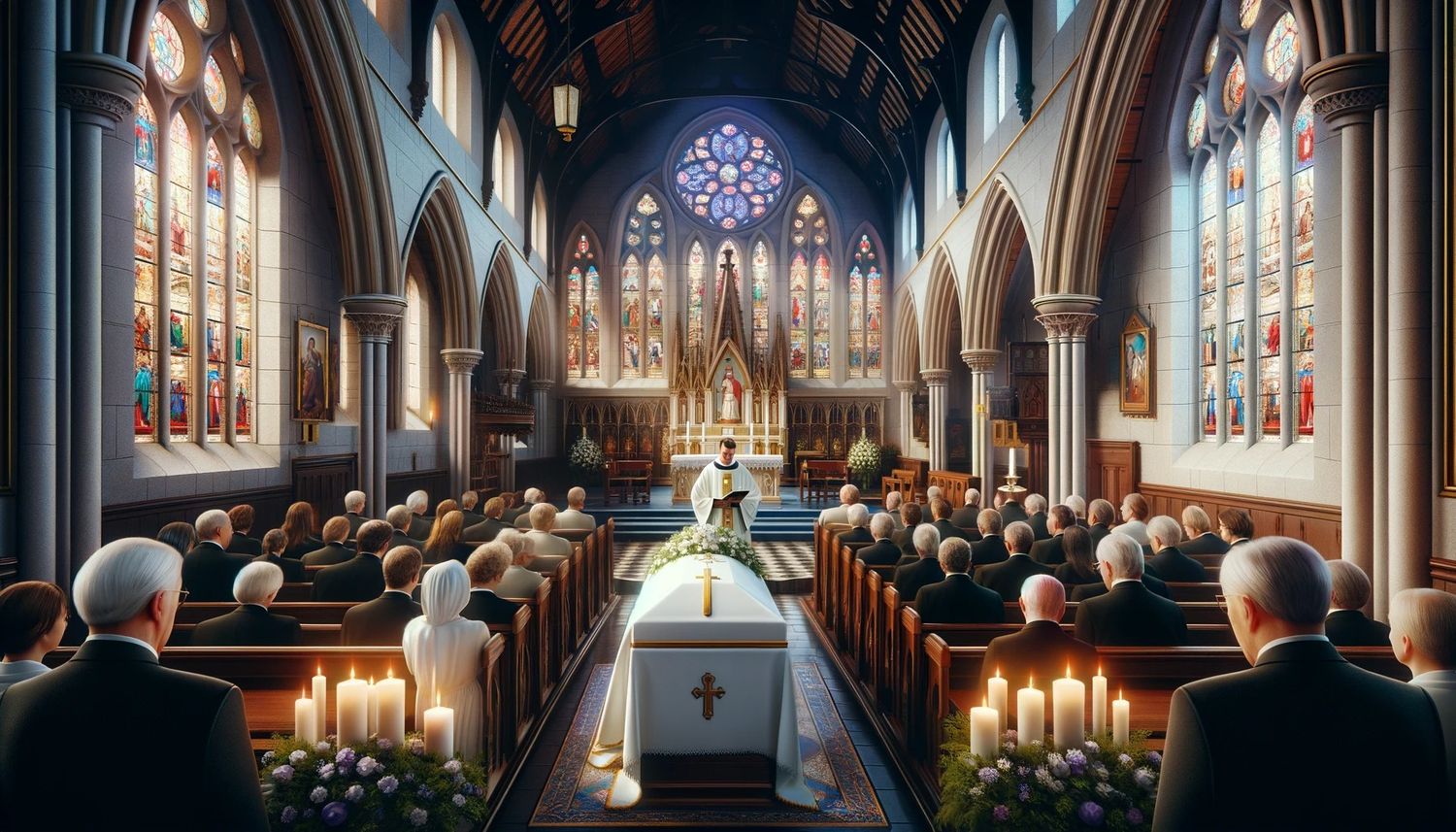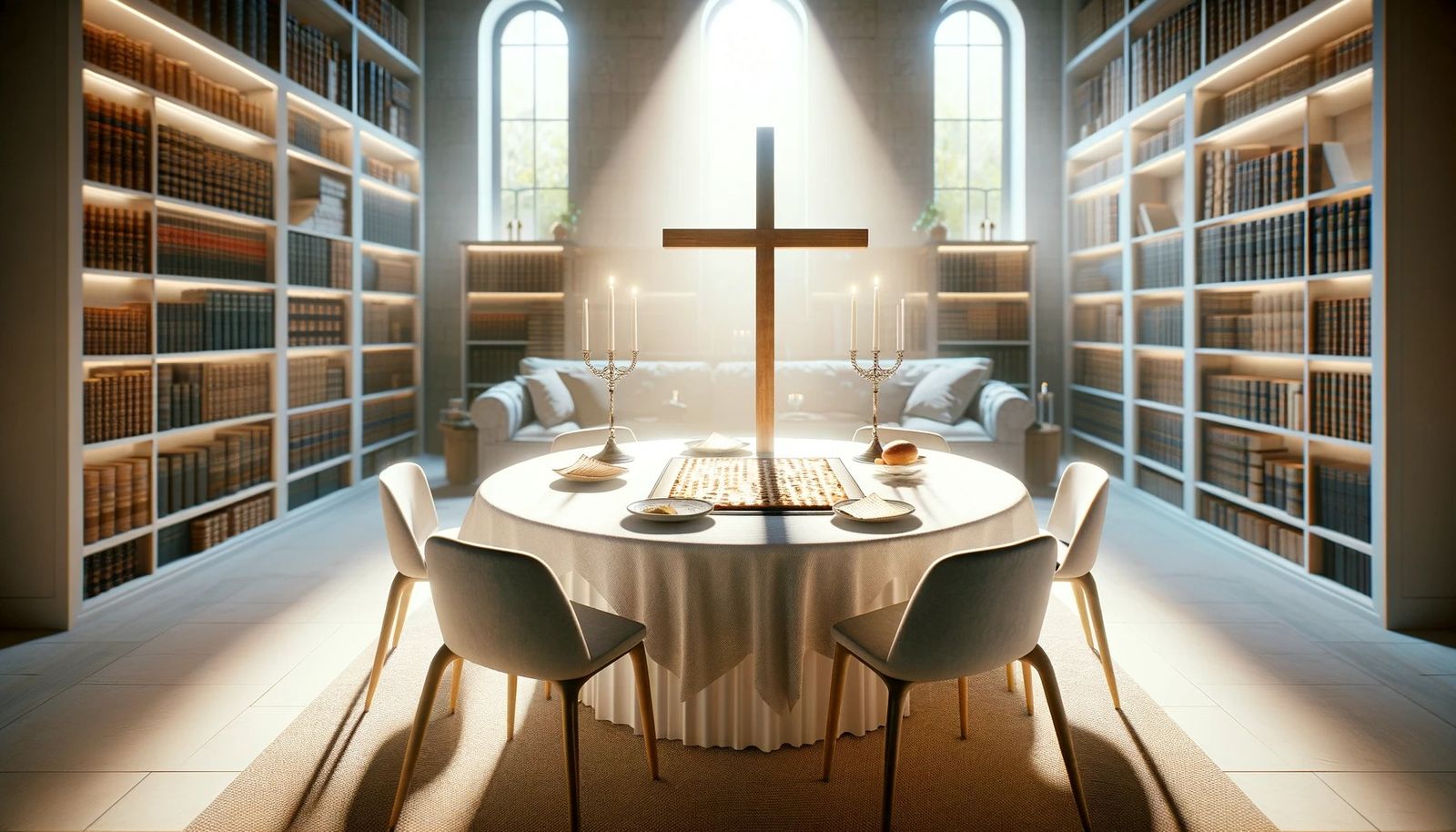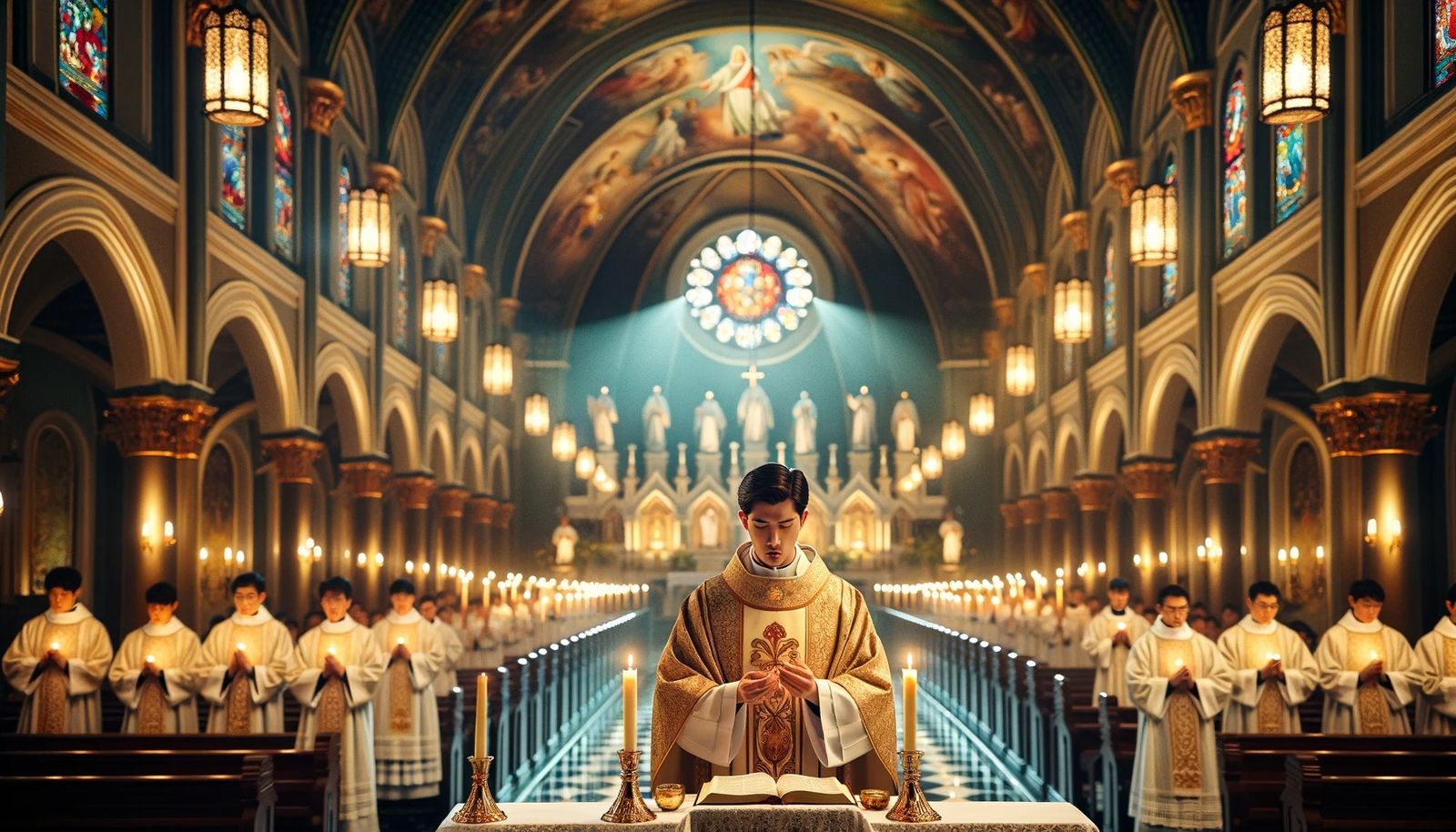Home>Theology and Spirituality>Why Catholicism Is Better Than Protestantism
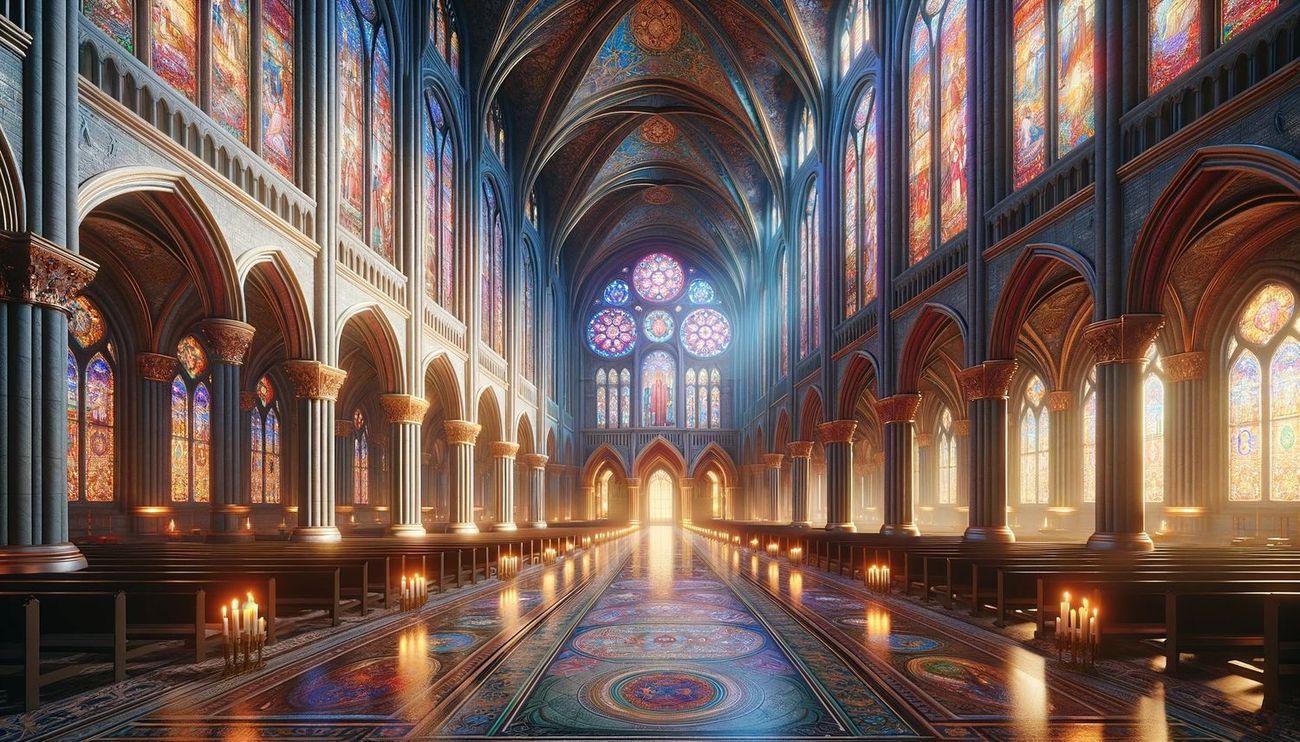

Theology and Spirituality
Why Catholicism Is Better Than Protestantism
Published: February 17, 2024
Ericka Andersen, an editor at Christian.net, expertly merges digital strategy with content creation, focusing on faith and societal issues. Her communication skills enhance the platform's engaging narratives, fostering meaningful dialogue on belief's impact on society.
Discover the theological and spiritual differences between Catholicism and Protestantism and find out why Catholicism is considered superior in this insightful comparison. Explore the key aspects that set these two branches of Christianity apart.
(Many of the links in this article redirect to a specific reviewed product. Your purchase of these products through affiliate links helps to generate commission for Christian.net, at no extra cost. Learn more)
Table of Contents
Introduction
Catholicism and Protestantism are two major branches of Christianity, each with its own distinct beliefs, practices, and traditions. The differences between these two branches have been a source of theological debate and division for centuries. While both share a common faith in Jesus Christ, they diverge on various doctrinal and ecclesiastical matters. In this article, we will explore why Catholicism stands out as a superior choice compared to Protestantism, delving into historical, theological, and spiritual aspects that set Catholicism apart.
The rich history and profound theological heritage of Catholicism have shaped its identity as a faith tradition deeply rooted in apostolic succession, sacramental worship, and the veneration of saints. This contrasts with the more diverse and decentralized nature of Protestantism, which encompasses a wide array of denominations and theological perspectives. By examining the historical background, theological differences, the role of tradition, the importance of the Eucharist, and the authority of the Pope, we will uncover the compelling reasons why Catholicism offers a more comprehensive and spiritually fulfilling path than Protestantism.
Throughout this exploration, we will highlight the enduring significance of Catholicism's ancient traditions, the profound sacramental life it offers to believers, and the unifying authority of the Pope as the successor of Saint Peter. By understanding these key aspects, we can gain a deeper appreciation for the richness and depth of the Catholic faith, ultimately recognizing why it holds a distinct advantage over Protestantism in nurturing a profound spiritual journey and fostering a closer relationship with God.
Historical Background
The historical roots of Catholicism can be traced back to the early Christian Church, with its origins firmly embedded in the teachings of Jesus Christ and the apostles. The term "Catholic" itself, derived from the Greek word "katholikos," meaning "universal," reflects the expansive and inclusive nature of the faith. From the establishment of the first Christian communities in the Mediterranean region to the eventual emergence of the Roman Catholic Church, the historical trajectory of Catholicism is marked by a profound continuity of tradition and a steadfast commitment to preserving the teachings passed down from the apostolic era.
In contrast, the origins of Protestantism can be primarily attributed to the 16th-century Reformation, a period of religious upheaval and reform spearheaded by influential figures such as Martin Luther, John Calvin, and Huldrych Zwingli. The Reformation was characterized by a rejection of certain practices and doctrines of the Roman Catholic Church, leading to the formation of new theological perspectives and ecclesiastical structures. This pivotal historical event resulted in the splintering of Western Christianity and the emergence of diverse Protestant denominations, each with its own doctrinal emphases and interpretations of the Christian faith.
The historical background of Catholicism is marked by its continuity with the early Christian Church, the establishment of the papacy, the development of sacred traditions, and the enduring influence of key theological figures such as Augustine of Hippo and Thomas Aquinas. This rich historical tapestry underscores the deep roots of Catholicism in the ancient traditions and teachings of the early Church, providing a sense of historical continuity and theological coherence that resonates with millions of believers worldwide.
In contrast, the historical background of Protestantism is characterized by a break from certain aspects of Catholic tradition, a focus on individual interpretation of scripture, and the proliferation of diverse denominations with varying theological emphases. The historical trajectory of Protestantism reflects a more decentralized and diverse landscape, marked by theological innovation, doctrinal diversity, and the ongoing evolution of distinct denominational identities.
Overall, the historical background of Catholicism is distinguished by its deep historical continuity, apostolic heritage, and the enduring presence of sacred traditions, setting it apart from the more diverse and decentralized historical trajectory of Protestantism.
Theological Differences
The theological variances between Catholicism and Protestantism are profound and have been central to the historical and doctrinal divisions between these two branches of Christianity. At the core of these differences lie contrasting perspectives on key theological tenets, including the nature of salvation, the authority of scripture and tradition, the role of the sacraments, and the structure of the church.
In Catholicism, the concept of salvation is intricately linked to the sacramental life of the Church, with emphasis placed on the transformative power of the sacraments, particularly baptism and the Eucharist, in conveying God's grace to believers. The Catholic Church also upholds the significance of good works as a response to God's grace, viewing them as integral to the process of sanctification. In contrast, Protestantism, particularly in its Reformed and Evangelical traditions, emphasizes the doctrine of justification by faith alone, positing that salvation is solely a result of God's grace received through faith in Jesus Christ, apart from any human effort or merit.
Another pivotal theological divergence pertains to the authority of scripture and tradition. Catholicism maintains the dual authority of scripture and sacred tradition, viewing them as complementary sources of divine revelation, both entrusted to the Church for interpretation and safeguarding. This view is encapsulated in the concept of "Magisterium," which denotes the teaching authority of the Church exercised by the Pope and the bishops in communion with him. In contrast, Protestantism, particularly in its foundational principle of "sola scriptura" (scripture alone), asserts the sole authority of the Bible in matters of faith and practice, rejecting the binding authority of sacred tradition as formulated by the Catholic Church.
Furthermore, the understanding of the church's structure and governance differs significantly between Catholicism and Protestantism. Catholicism affirms the hierarchical structure of the Church, with the Pope as the visible head and the bishops as successors to the apostles, entrusted with the task of preserving and transmitting the apostolic faith. In contrast, Protestantism encompasses a diverse array of ecclesiastical structures, ranging from episcopal polity to congregational polity, with varying degrees of emphasis on the role of ordained clergy and the autonomy of local congregations.
These theological disparities underscore the profound differences in doctrinal emphases, ecclesial structures, and spiritual practices between Catholicism and Protestantism, shaping the distinctive identities and theological frameworks of these two major branches of Christianity.
The Role of Tradition
In Catholicism, the role of tradition holds profound significance, serving as a vital conduit through which the rich tapestry of faith, doctrine, and spiritual heritage is transmitted across generations. The concept of tradition, deeply rooted in the Latin word "traditio," meaning "to hand over," encapsulates the sacred continuity of beliefs, practices, and teachings that have been passed down from the apostolic era through the apostles and their successors, the bishops, and the wider Christian community. This living tradition, often referred to as the "deposit of faith," encompasses the teachings of Jesus Christ, the apostolic witness, the early Church Fathers' writings, and the ecumenical councils' doctrinal formulations.
Central to Catholic tradition is the veneration of the saints, the celebration of liturgical seasons and feasts, the use of sacramentals, and the preservation of sacred rituals and devotional practices. The role of tradition in Catholicism is exemplified in the enduring significance of the Mass, the sacraments, and the liturgy, which encapsulate centuries of sacred tradition and spiritual wisdom. The liturgical calendar, with its cycle of seasons and feasts, reflects the rhythm of salvation history and serves as a means of immersing believers in the timeless truths and mysteries of the Christian faith.
Moreover, the role of tradition is intricately linked to the magisterial authority of the Church, which safeguards and interprets the deposit of faith in continuity with the apostolic tradition. The teachings of the Church, articulated through encyclicals, catechisms, and doctrinal pronouncements, are informed by the living tradition, ensuring doctrinal coherence and fidelity to the apostolic witness. The role of tradition also finds expression in the sacred art, architecture, and music of the Catholic Church, serving as a visual and auditory testament to the enduring legacy of faith and devotion.
In contrast, while Protestantism acknowledges the importance of tradition, particularly in the interpretation of scripture and the formulation of early Christian creeds, it generally places greater emphasis on the authority of scripture alone in matters of faith and practice. The role of tradition in Protestantism is often viewed through the lens of "primitivism," seeking to restore the early Christian practices and beliefs without the accretions of later tradition.
Overall, the role of tradition in Catholicism is integral to the vibrant tapestry of faith, spirituality, and communal worship, serving as a bridge that connects the contemporary Church with its apostolic origins and the enduring legacy of Christian witness. This living tradition continues to inspire and guide believers, fostering a profound sense of continuity with the timeless truths and spiritual treasures of the Catholic faith.
The Importance of the Eucharist
The Eucharist, also known as the Holy Communion or the Lord's Supper, holds a central and profound significance within the Catholic faith, representing the very heart of Catholic worship and spirituality. At the core of Catholic belief is the doctrine of transubstantiation, which asserts that during the celebration of the Eucharist, the bread and wine truly become the body and blood of Jesus Christ. This transformative act, rooted in the words of Jesus at the Last Supper, "This is my body" and "This is my blood," encapsulates the profound mystery of Christ's real presence in the Eucharistic elements.
The importance of the Eucharist in Catholicism extends beyond mere symbolism or remembrance; it embodies a profound encounter with the living Christ. Through the reception of the Eucharist, Catholics believe they partake in the very sacrifice of Christ, uniting themselves with His redemptive act on the cross. This sacred meal, far from being a mere ritual, becomes a transformative encounter with the divine, nourishing the soul and fostering a deep communion with Christ and the entire body of believers.
The Eucharist also serves as a source of spiritual sustenance, providing strength, grace, and sustenance for the Christian journey. It is seen as the "bread of life," offering nourishment for the soul and fortifying believers to live out their faith in the world. The act of receiving the Eucharist is imbued with reverence and awe, as Catholics approach the altar to partake in this sacred mystery, recognizing the profound spiritual nourishment it imparts.
Furthermore, the communal aspect of the Eucharist underscores its significance in fostering unity and fellowship within the Church. As believers gather to partake in the Eucharistic celebration, they are united not only with Christ but also with one another, forming a spiritual bond that transcends individuality and embraces the entire body of Christ. The Eucharist thus becomes a powerful symbol of unity, love, and shared faith, reinforcing the communal dimension of the Catholic Church.
In summary, the importance of the Eucharist in Catholicism cannot be overstated. It represents the pinnacle of Catholic worship, encapsulating the real presence of Christ, providing spiritual nourishment, and fostering unity within the body of believers. This sacred sacrament stands as a testament to the profound depth of Catholic spirituality and the enduring significance of the Eucharistic mystery in the life of the Church.
The Authority of the Pope
The authority of the Pope, also known as the Bishop of Rome and the Supreme Pontiff of the Catholic Church, holds a central and distinctive role within the framework of Catholicism. According to Catholic doctrine, the Pope is regarded as the successor of Saint Peter, who was appointed by Jesus Christ as the rock upon which the Church would be built. This belief in the apostolic succession, known as the "Petrine doctrine," forms the theological foundation for the Pope's authority and leadership within the Church.
The Pope's authority is multifaceted, encompassing spiritual, doctrinal, and pastoral dimensions. As the Vicar of Christ on earth, the Pope is seen as the visible sign of unity and the supreme teacher of the faith, entrusted with the task of preserving and interpreting the deposit of faith. This spiritual authority is articulated through the exercise of the "Magisterium," which denotes the Pope's role in defining and safeguarding the authentic teachings of the Church, particularly in matters of faith and morals.
Furthermore, the Pope's doctrinal authority is exemplified in the infallibility conferred upon him under certain conditions, as defined by the First Vatican Council. This charism of infallibility, understood as the Pope's immunity from error when solemnly defining a doctrine concerning faith or morals, underscores the significance of his doctrinal pronouncements as binding and irreformable for the entire Church.
In addition to his spiritual and doctrinal authority, the Pope holds a pastoral role as the universal shepherd of the faithful. This pastoral dimension is manifested in the Pope's care for the spiritual well-being of the Church, his guidance in matters of ecclesiastical governance, and his role as a symbol of unity for Catholics worldwide. The Pope's pastoral authority is expressed through his pastoral visits, encyclicals, apostolic exhortations, and other forms of guidance aimed at nurturing the faith and addressing the spiritual needs of the Church.
The authority of the Pope, rooted in the historical primacy of the See of Rome and the Petrine commission, serves as a unifying force that transcends geographical, cultural, and linguistic boundaries, embodying the universal nature of the Catholic Church. This unique and comprehensive authority distinguishes the Pope as a figure of spiritual leadership, doctrinal integrity, and pastoral care, shaping the identity and unity of the Catholic Church throughout history and into the present day.
Conclusion
In conclusion, the comparison between Catholicism and Protestantism reveals profound differences in historical roots, theological emphases, and ecclesiastical structures. Catholicism, with its rich historical continuity, apostolic heritage, and profound theological depth, stands out as a spiritually enriching and comprehensive faith tradition. The enduring significance of Catholic tradition, the transformative power of the Eucharist, and the unifying authority of the Pope collectively contribute to the compelling reasons why Catholicism offers a superior path compared to Protestantism.
The historical background of Catholicism, rooted in the early Christian Church and the apostolic succession, underscores its continuity with the ancient traditions and teachings of the early Church. This historical depth provides a sense of historical continuity and theological coherence that resonates with millions of believers worldwide, setting it apart from the more diverse and decentralized historical trajectory of Protestantism.
Furthermore, the theological differences between Catholicism and Protestantism, particularly in the understanding of salvation, the authority of scripture and tradition, and the structure of the Church, highlight the distinctive doctrinal emphases and ecclesial structures that shape the identities of these two branches of Christianity. Catholicism's emphasis on sacramental grace, the dual authority of scripture and tradition, and the hierarchical structure of the Church underscores its theological richness and spiritual depth.
The role of tradition in Catholicism serves as a vital conduit for transmitting the rich tapestry of faith, doctrine, and spiritual heritage across generations, fostering a profound sense of continuity with the timeless truths and spiritual treasures of the Catholic faith. The enduring significance of the Eucharist in Catholicism, as the real presence of Christ and a source of spiritual nourishment and unity, exemplifies the profound depth of Catholic spirituality and the enduring significance of the Eucharistic mystery in the life of the Church.
Finally, the authority of the Pope, as the successor of Saint Peter and the visible sign of unity, doctrinal integrity, and pastoral care, distinguishes Catholicism as a faith tradition with a unifying and comprehensive spiritual leadership. The Pope's multifaceted authority, encompassing spiritual, doctrinal, and pastoral dimensions, embodies the universal nature of the Catholic Church, providing guidance and unity for Catholics worldwide.
In essence, the depth of historical continuity, the theological richness, the spiritual vitality, and the unifying authority within Catholicism collectively position it as a spiritually enriching and comprehensive path, offering a profound and transformative journey of faith and communion with God.
